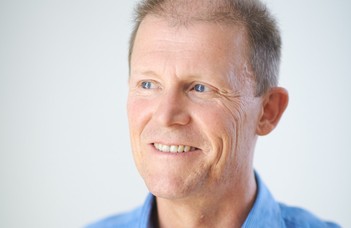"Don’t students know more about social media than professors?"

– Is business ethics optional?
I often meet students who think more often of themselves as a customer or an employee. We are all good at criticizing companies and their behavior. The fact is, that most of you will be managers one day, many of you quite soon. You will be involved in making decisions that have ethical impacts affecting your customers, your employees, and your company’s image. We make both good and poor decisions, but I would rather make decisions with the support of tools that help me identify and analyze those impacts and the risk to my company and my own job.
– What is the connection between social media and Business Ethics?
Compared with a classical business ethics course, we’ll look at three ways that social media has impacted companies’ decision-making. First, social media has changed what is considered acceptable and ethical. Second, it has reduced the time companies have to react to ethics accusations. Third, companies use social media as a tool to improve and influence their ethical image.
– Don’t students know more about social media than professors?
Social media has really come into its own over the past 20 years, so those who have grown up and become adults during that period are obviously more experienced and familiar with it. You are the experts and are far more aware of the platforms, habits, nuances, and trends than professors like me who have had to absorb, learn, and change on the run. What makes this course so exciting is that we mix something you are experts at with something I’m an expert at to see what the outcome is.
What may not be so obvious is that social norms have changed more over the past 20 years than at any time previously in history. Behavior that was considered unacceptable a few years ago is normal now. Discrimination that used to be acceptable to the point of not being noticed is landing people in prison today.
This course will work to highlight the impact those changes are having on Business Ethics in practice for real companies trying to do business with real people as employees, customers, suppliers, and owners.
– What is the course going to be like?
Like all of the ELTE summer university courses, this one involves a lot of interaction and discussion. We’ll learn some theory and models, but then quickly apply them to real case studies of companies that are in ethical trouble to draw conclusions about good and bad decisions and how to manage the outcome of crises we find ourselves in.
We’ll each share our views on where society’s ethics come from and whether they are stable and black and white, or shifting with time and culture. Coming from diverse cultural, educational, and family backgrounds, we’ll hear differing views and learn from each other.
I will also encourage you to share active ethics issues you see happening to internationally known companies on your social media sources during the week. We will discuss and analyze what is going on using the tools we have learned and try to suggest what the companies should do. And we’ll have fun doing it.
Fraser Hodges has 30 years of international management experience in the Automotive and Oil & Gas industries. Today, he is Head of Project Finance at Save the Children Denmark overseeing the global distribution of €100m annually to ensure children survive, learn, and are protected. With an engineering degree from Oxford and an MBA from INSEAD he is also a visiting professor at IBS Budapest in Economics, Strategy, and Business Ethics.

